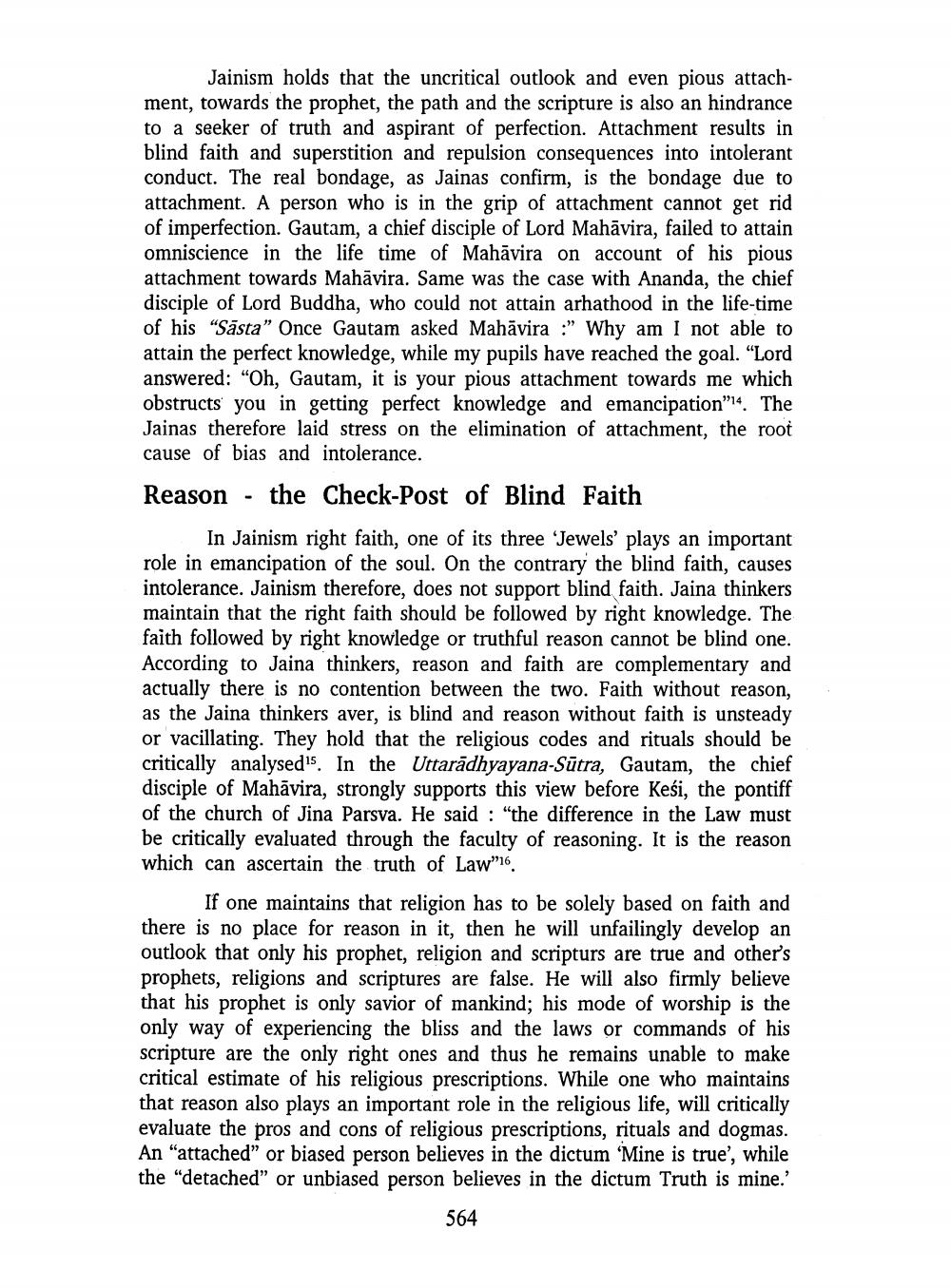________________
Jainism holds that the uncritical outlook and even pious attachment, towards the prophet, the path and the scripture is also an hindrance to a seeker of truth and aspirant of perfection. Attachment results in blind faith and superstition and repulsion consequences into intolerant conduct. The real bondage, as Jainas confirm, is the bondage due to attachment. A person who is in the grip of attachment cannot get rid of imperfection. Gautam, a chief disciple of Lord Mahāvira, failed to attain omniscience in the life time of Mahāvira on account of his pious attachment towards Mahāvira. Same was the case with Ananda, the chief disciple of Lord Buddha, who could not attain arhathood in the life-time of his "Sasta" Once Gautam asked Mahāvira :" Why am I not able to attain the perfect knowledge, while my pupils have reached the goal. “Lord answered: "Oh, Gautam, it is your pious attachment towards me which obstructs you in getting perfect knowledge and emancipation"4. The Jainas therefore laid stress on the elimination of attachment, the root cause of bias and intolerance. Reason - the Check-Post of Blind Faith
In Jainism right faith, one of its three Jewels' plays an important role in emancipation of the soul. On the contrary the blind faith, causes intolerance. Jainism therefore, does not support blind faith. Jaina thinkers maintain that the right faith should be followed by right knowledge. The faith followed by right knowledge or truthful reason cannot be blind one. According to Jaina thinkers, reason and faith are complementary and actually there is no contention between the two. Faith without reason, as the Jaina thinkers aver, is blind and reason without faith is unsteady or vacillating. They hold that the religious codes and rituals should be critically analysed. In the Uttaradhyayana-Sūtra, Gautam, the chief disciple of Mahāvira, strongly supports this view before Kesi, the pontiff of the church of Jina Parsva. He said : "the difference in the Law must be critically evaluated through the faculty of reasoning. It is the reason which can ascertain the truth of Law"16.
If one maintains that religion has to be solely based on faith and there is no place for reason in it, then he will unfailingly develop an outlook that only his prophet, religion and scripturs are true and other's prophets, religions and scriptures are false. He will also firmly believe that his prophet is only savior of mankind; his mode of worship is the only way of experiencing the bliss and the laws or commands of his scripture are the only right ones and thus he remains unable to make critical estimate of his religious prescriptions. While one who maintains that reason also plays an important role in the religious life, will critically evaluate the pros and cons of religious prescriptions, rituals and dogmas. An "attached" or biased person believes in the dictum 'Mine is true', while the "detached" or unbiased person believes in the dictum Truth is mine.'
564




